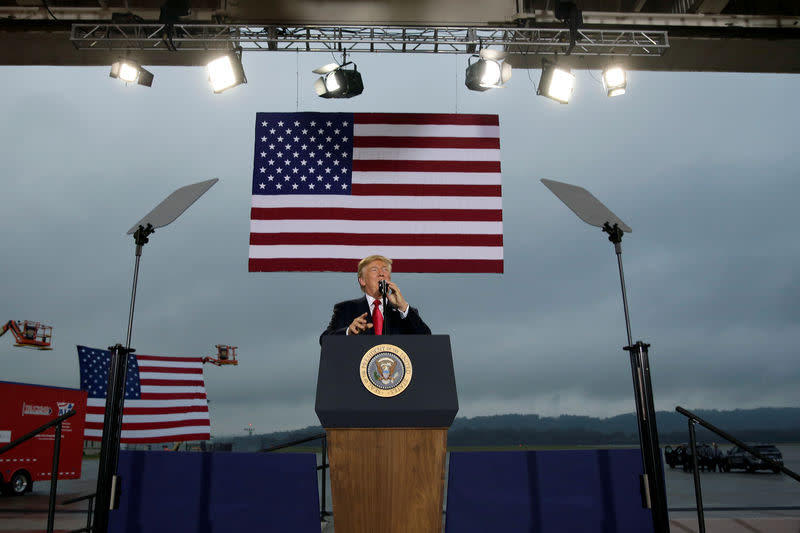The stock market rally isn't about tax cuts
Some market pundits have recently argued that the likelihood of tax reform explains the surge in the market since the election in November. The S&P 500 is up over 20%.
In a new research note, Credit Suisse’s Jonathan Golub says that’s wrong: Stocks are “ignoring Trump on taxes.”

“This isn’t my opinion,” Golub explained. “It’s straight what the market is telling us.”
Golub’s analysis shows that the market rewarded firms with high effective tax rates — which would see the biggest benefit from tax cuts — for only three weeks post-election and haven’t since, as shown in the chart below. For the most part, companies with low effective tax rates have outperformed those with high effective tax rates.

Even the recent release of a tax reform framework at the end of September didn’t change this market dynamic.
There may be multiple drivers behind the market’s indifference to tax reform, according to Golub.
First, the market seems to have acknowledged that a deal might be too difficult to pass, particularly because of resistance to increase the deficit, the difficulties of achieving a revenue-neutral bill, and a philosophical disagreement around “dynamic scoring” (or the growth-inducing effects of lowering taxes).
“And that’s before you even get into politics,” Golub said.
Second, Golub explained the bill could likely get watered down too much to make much of a difference, also impacting the way the market prices its impact.
And third, passage could elicit a hawkish response from the Fed, which would undermine potential benefits.
Instead, Golub explained the strength in the market has been a result of strong economics, corporate profits and overseas growth.
How to trade tax reform
Golub said that since the market isn’t pricing in tax reform currently, he doesn’t see much impact to the market if it doesn’t passes.
“We do not believe that stocks would be at risk if a deal isn’t struck,” Golub said.
Additionally, he said he believes an eventual passage would have a fairly muted reaction, given questions around the overall growth impact and the offsetting impacts from the Fed.
But for investors that think tax reform is going to happen and that it will be good for the markets, the key way to play is to invest in the companies with the highest effective tax rates in each sector. These names include Johnson Controls (JCI), Centene (CNC), Humana (HUM), Amazon.com (AMZN), and Juniper Networks (JNPR), to name a few.
Meanwhile, companies with some of the lowest effective tax rates—including Baxter (BAX), Prologis (PLD), Pioneer Natural Resources (PXD), Digital Realty Trust (DLR), and Electronic Arts (EA)—could be hit, given that they will be less advantaged and even potentially lose some of the loopholes they are currently benefitting from.
“If you believe in this, you should be going all in with this sort of trade,” Golub said. “The key way to make money here is investing not on the direction of the market but on the dynamics.”
Nicole Sinclair is markets correspondent for Yahoo Finance
Please also see:
Companies say they would use repatriated earnings to buy back stock
One-third of retirees end up getting full-time jobs
Credit Suisse’s new strategist unveils bullish 2018 market call
Top strategist warns solid earnings may not be enough to move stocks higher

 Yahoo Finance
Yahoo Finance 
